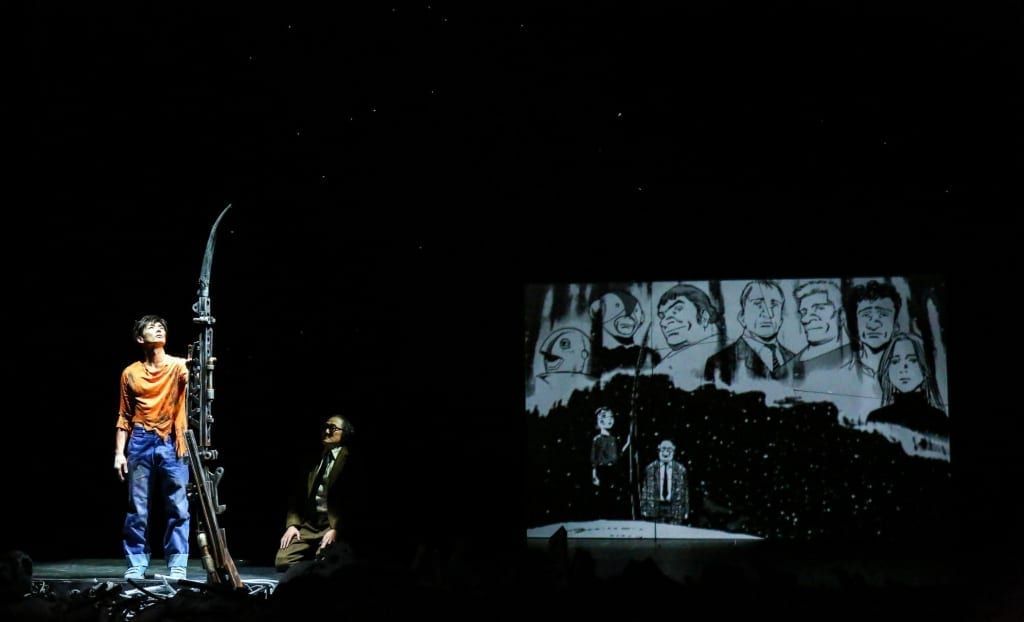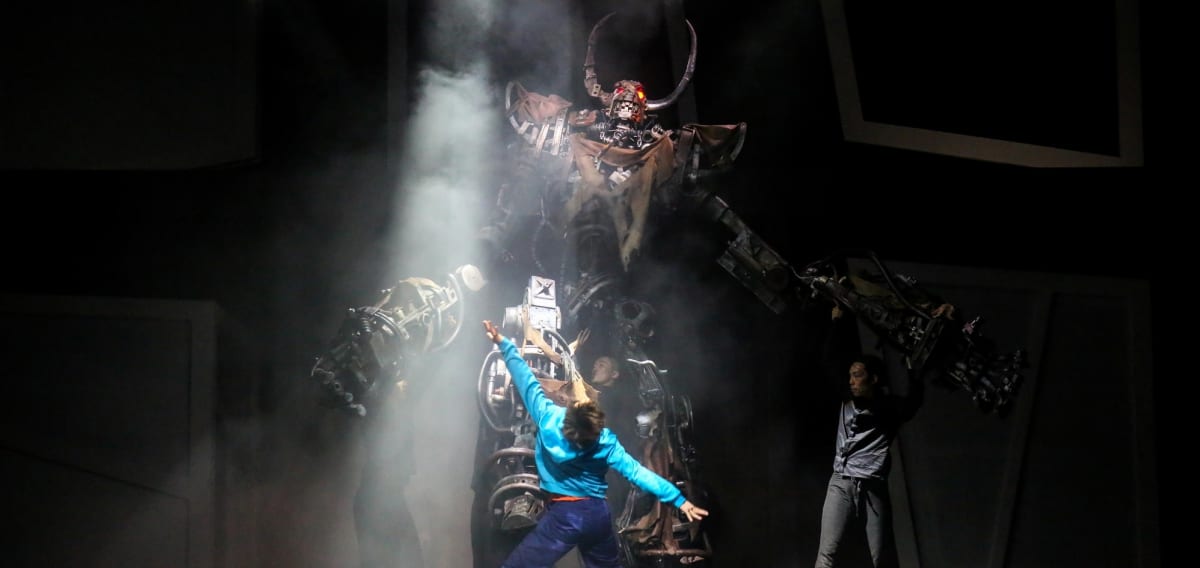The overwhelming sentiment when I left the Barbican after seeing ‘Pluto’ was: “This was amazing but I am exhausted!”. I would definitely recommend it to people but they would need to be aware it requires effort. Two-time Olivier Award winner Sidi Larbi Cherkaoui draws his inspiration from the ‘Astro Boy’ – as we know it in the West – manga series and creates a multigenre spectacle the likes of which are not often or easily brought to the stage.
‘Pluto’ is the story of Europol robot police inspector Gesicht as he tries to solve a series of murders of both humans and robots, around the globe. As one after the other the most advanced robots are found murdered along with leading figures in robotics, it all appears to be connected to the recent 39th Central Asian war, when the United States of Thracia bombarded the oligarchic Persia purportedly because of its WMD arsenal creating a sea of destruction, killed civilians and refugees. The parallels are not just glaring but rather blinding and accompanied by a marching band, so as not to miss them. What makes the case even more puzzling is the lack of physical evidence, which points to a robot being the killer, in an era when AI is so advanced that the International Robot Laws give robots equal rights, but when still robots are believed unable to lie, kill or forget.

Where ‘Pluto’ is a triumph is the style and the technique. The show begins with the dissolution of a screen containing images of advanced robots. Taiki Ueda’s designs incorporate projected illustrations; white panels split the action into frames, while white blocks are shuffled into abstract locations – cemeteries, underground laboratories, oriental bazaars and futurist flats; the robots are puppets and the length of the edge of the stage is host to an intricate sculpture of discarded robot parts. Cherkaoui’s suited dancers lend a three-dimensional plasticity to the actors’ emotions and double as scene shifters and puppeteers. But despite the assorted genres involved it is still distinctly manga brought to the stage, the short and frenetic action scenes, the allusions to noh theatre and being wholly performed in Japanese – with English surtitles – leave no room for confusion.

Where ‘Pluto’ needs work, to be accurate, where it needs trimming down is primarily the storyline and to a lesser extent the ethical issues it attempts to tackle.
While pieces begin to fall into place right before the interval after the break the story becomes more and more convoluted with scenes, which could have been easily omitted because they add nothing to the story – like the saccharine “ghost” scenes of Gesicht or the chess scene between Abullah and Dr Tenma – or because they feel perplexing and incomplete since we the audience do not fully comprehend or know how this reality came about or how it is structured – the story with Gesicht’s child, is a good example of that.
The thread that runs through the whole production is the definition of humanity and the ethics of our actions, but adding to that geopolitics and political satire and the challenges lying ahead because of the rapid evolution of technology, in addition to all the visual extravagance, it makes ‘Pluto’ occasionally cumbersome.
But despite all that it is an ambitious project with a marvellous payoff.

